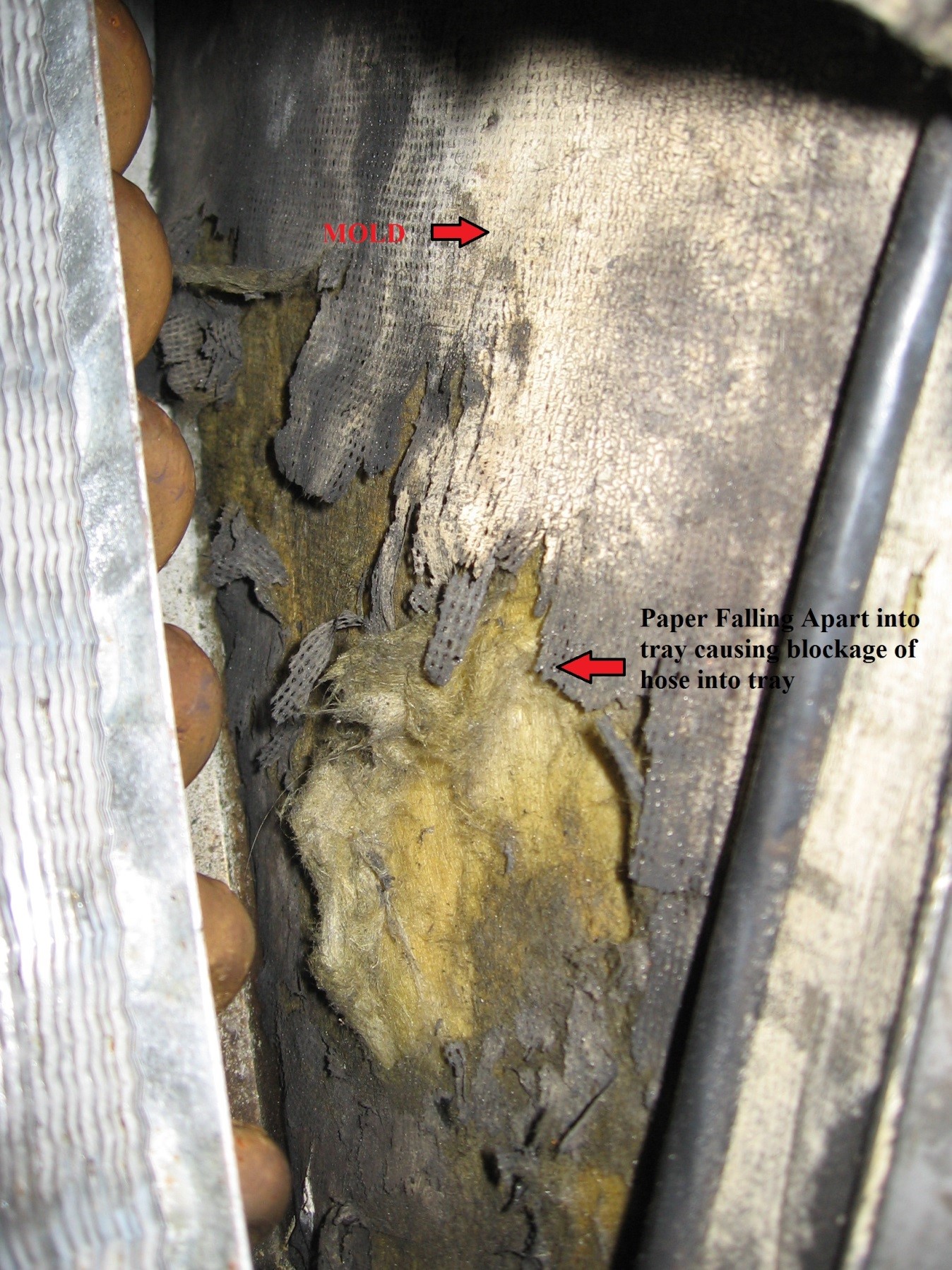Our professional technicians are experts in fan coil mold remediation & replacement in Toronto. Cleanfirst has been remediating, replacing, and doing refurbishment of fan coils unit mold in Toronto and Gta since 1989.
Moisture and organic materials found inside a fan coil unit like insulation causes the growth of mold and often requires mold remediation of the fan coil.
Most fan coil units in condominiums use a 2-4 pipe system where water is carried throughout all units, in the winter hot water is provided by the condominium boiler and in the summer cold water by the chiller.
 Since the fan coil units have evaporator coils that always sweat moisture when the AC is turned on, often the paper lining of the insulation on the fan coil unit gets a lot of mold.
Since the fan coil units have evaporator coils that always sweat moisture when the AC is turned on, often the paper lining of the insulation on the fan coil unit gets a lot of mold.
This is due to excessive accumulation of moisture and organic food source.
As occupants do not generally check or maintain the inside of the fan coil units in their condominium, they are unaware and are breathing and spreading mold spores that are residing inside their fan coil units.
This is what it looks like if you have mold inside your fan coil unit.
Mold remediation inside the fan coil units is often needed if your insulation and components inside reveal mold contamination. Type 2 mold remediation is needed in order to not cross-contaminate the mold to other areas while removing it from the materials, to protect the safety of the occupants and to ensure the fan coil unit and all other components are free of any mold.
If you use the air conditioner in the summer months and your condominium fan coil is a few years old than you probably have it since all manufacturers still use cheaper insulation that has a food source for mold (paper lining). Since moisture will always be present in the ac season inside the fan coil unit, the necessity of avoiding any organic materials inside is the key to avoiding mold contamination. (Moisture plus organic food source = mold)
Why do I need insulation on the fan coil units?
Insulation on the fan coil unit has 2 primary functions, 1 thermal value, and 2 noise reduction.
The insulation protects the galvanized box to become wet and rust since is always exposed to moisture and heat; and also reduces sound coming from fan coil blower housing and other mechanical components.
By opening the fan coil unit and inspecting the inside or calling us for a free inspection.
Steps to open a fan coil unit;
1- lift door above filter
2-Remove N#10 screws on side (frame) of cover
3-Remove the next 2 screws on the galvanized front door.
4- Inspect the inside of the fan coil for mold growth.
Can I kill the mold myself?
Temporarily you probably could but it won’t stop from reoccurring since you must remove the food source and the materials are too porous to effectively kill any mold growth. Safely Removal of porous organic materials is often the recommended solution.
Is it safe for me to choose not to do mold remediation of my fan coil unit & do not opt for fan coil replacement service in Toronto?
Most often you are being exposed to thousands of spores, you can become sensitized, have allergic symptoms, or worse if you have an immune-compromised condition. There are currently no mold exposure guidelines; Health Canada recommends the removal of all molds from our indoor environment regardless of the species. However, no one wants to buy a Condominium apartment where they will be exposed and breathe mold from the fan coil unit.
Costs can range from $800 to $1500 depending on the repairs needed and how many units, the accessibility, type of materials, and amount of replacement or repair need it to dictate the pricing. A free inspection by an experienced technician will determine what can be repaired or replaced.
We have successfully remediated and repaired thousands of fan coil units to a new condition. Call us for your free inspection and peace of mind.

Here is a list of popular locations we serve. Call us if yours is not on the list!
Ajax, Aurora
Bancroft, Barrie, Brampton, Burlington
Downsview
Etobicoke
Georgetown, Guelph
Hamilton
Kitchener
Markham, Midland, Milton, Mississauga
Newmarket, Niagara-on-the-Lake, North York
Oakville
Pickering
Rexdale, Richmond Hill
Scarborough, St Catharines
Toronto
Vaughan
Waterloo, Whitby